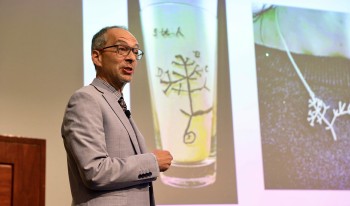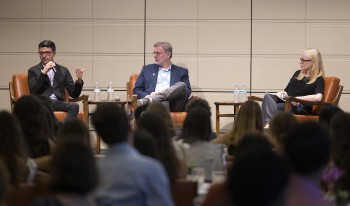Students lead sustainable campus projects
Whether it’s planting a vibrant native plant garden, devising a way to recycle disposable face masks, or tracking CMC’s progress toward carbon neutrality, four CMC students are making a tangible and sustainable difference on campus.
CMC’s commitment to reducing climate change through campus-wide efforts is personified by these four environmentally aware student leaders who have earned 2022 Sustainability Fund grants.






